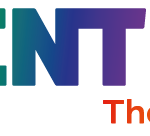Written by Dr Matt Noble

Interestingly, I am sure that in those same sitting rooms, all over the UK, our young and old were using smartphones and tablets together… To skype family who couldn’t make it, play games, and watch their favourite T.V shows. A 2017 Deloitte survey that was published by the BBC, in fact, showed that 71% of 55-to-75-year olds now own an app-capable device.
Personally, I think it is time to stop patronising the older generation by peddling the myth that they are not tech savvy. The immense benefits of digital technology for the elderly are particularly evident in healthcare delivery where it can complement their already excellent primary care services, providing convenience and choice.
As an example, a patient in her 70s came to me following an acute medical event which has left her with reduced mobility and communication difficulties. By being able to have digital consultations she can limit the need to travel to face to face appointments. Added to this, digital technology allows for enhanced care coordination capabilities helping to manage complex referrals and keep in touch with the patient and their family.
There’s more. Online video consultations allow elderly users to play back their appointments as many times as they want. No more ” I didn’t quite catch what she said” or, “Did he say to take before or after eating?” A playback feature may seem like only a small detail but it add to peace of mind and acts as a handy reminder.
According to the Campaign to End Loneliness, an estimated 1.1 million people over the age of 65 are chronically lonely in the UK, and lonely people are more likely to develop heart disease, depression and dementia. Moreover, their study found that over three-quarters of GPs said they were seeing between one to five lonely people a day.
This is evidently an increasing problem among our elderly population that requires both thorough and sensitive investigation. What I would say, however, is that as well as the physical toll it can take, the mental health ramifications are often just as acute.
Personally, I see the option for our elderly to discuss their loneliness, often as a result of bereavement, with a GP via video within minutes, as only beneficial. Of course, this is part of a holistic approach; traditional face-to-face treatment, combined with online technologies.
I appreciate that for many, digital healthcare technologies assisting the elderly may seem counter-intuitive, but we must not lazily patronise people, instead we must look to harness digital technologies’ capabilities to reach and benefit all members of society, young and old.
You can download the GP at Hand app via the following link:
https://www.gpathand.nhs.uk/download-app















